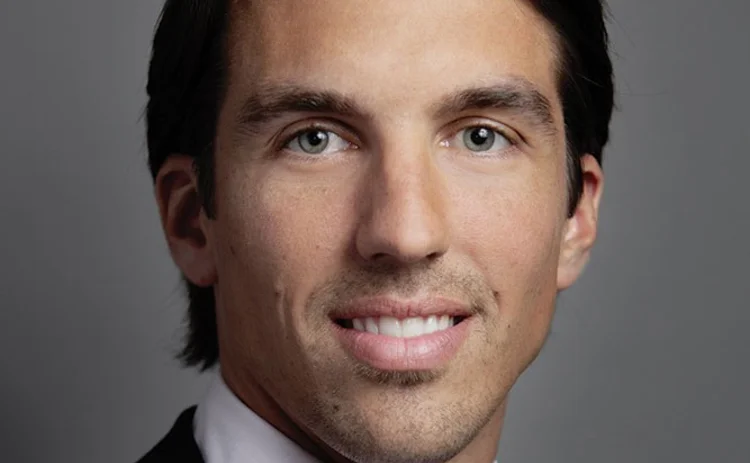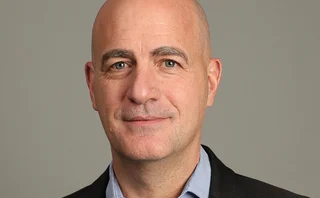
Central and Eastern Europe house of the year: Raiffeisen Centrobank
Bank brings products to a new audience with strong gains across listed markets

Structured Products Europe Awards 2016
Lending rates in central and eastern Europe have remained at rock bottom over the past 12 months, and in some cases have threatened to go right through the floor. While Poland's seven-day repo reference rate has held at 1.5% during 2016, the Hungarian benchmark deposit rate has been cut twice to its current 0.9% in a desperate effort to revive the domestic economy.
Dissatisfied investors have been forced to seek alternatives, with many turning to low-risk structured products for the first time. Against this backdrop, one issuer – Raiffeisen Centrobank (RCB) – has made the provision of low-risk, relatively high-yield investments in the region its own.
"Lower interest rates are showing the appeal of partially capital-protected structured products. Clients are recognising that to generate yield they have to accept some risk. We have some clients that didn't think about structured products until about one, two or three years ago," says Stefan Neubauer, head of sales for central Europe at RCB in Austria.
Traditionally, these clients would probably have bought government bonds, which bore little risk and offered sufficient yield to keep buyers happy. That is no longer the case; with money-market instruments offering meagre rates of return, RCB has been able to capitalise by offering relatively low-risk products that bear yields of around 4-6%.
The bank is now present in 10 central and eastern European countries, and its strategy is the same in each one, says Neubauer.
"We're looking at a new client base at the moment – the classic high-safety, fixed-income investors. That is where we are jumping in. But there has to be balance between risk and opportunity. It is important to be as transparent as possible," he says.
The Austrian bank has been a player in the region since 2006, and was the first bank to list structured products on the Polish, Czech, Hungarian and Romanian exchanges. It continues to colonise fresh frontiers, and in 2015 moved into Croatia and Bulgaria.
These countries have had little experience of structured products hitherto but as local investors grow bored with the rates of interest provided by conventional investments, this is changing. "Investors were looking for an alternative that wasn't there. We are always looking at the map and assessing additional opportunities," says Neubauer.
The growth rates enjoyed by RCB in 2016 have been impressive. Throughout the entire region, open interest in listed RCB products increased by 14.2% compared to 2015. Regional hotspots boast even more impressive gains: open interest increased by 23.7% in Poland, 34.1% in Romania and 40.7% in Slovakia, for example.
This great surge of enthusiasm for structured products evinced by Slovakian buyers has prompted RCB to build a branch in Bratislava so it could provide a face-to-face, local service. The branch should be up and running by next year.
The bank also enjoys large market shares on the local exchanges. It boasts a 70% share of the Vienna stock exchange and almost 50% of the Warsaw exchange, and has a presence on seven exchanges across which more than 4,000 certificates are listed.
The bank offers more than just listed products, however. It prepared 53 new bespoke deals last year, and, in addition, issued 67 primary market deals, which were sold across nine different countries in the region.
"RCB products are bespoke to the needs of private banking clients and it provides regular in-house product training to our sales force, which is very welcome," says Irena Jandikova, head of treasury at Expobank in the Czech Republic.
Among new products unveiled in 2016, the bank is particularly proud of one of its so-called guarantee certificates, the Gold Shark Bond, which was offered on the Warsaw exchange. These notes give buyers exposure to 100% of any improvement in the price of gold, provided it does not increase by more than 60% from the investment's starting value.
If gold declines in value over the term of the note, 100% capital protection applies at maturity in September 2021. If the gold price rises by more than 60% of the starting value, redemption of 110% is provided at maturity. The product not only allows investors participation in the positive performance of gold but also provides a hedge for those exposed to the metal.
Though RCB is coy about divulging the sales numbers of the Gold Shark Bond, it is said to have performed well. Overall, the buy ratio for all RCB certificates throughout the region rose by 15% over the year.
"We help clients to diversify risk and we generate longstanding relationships," says Neubauer. This appears to be paying off. Clients paid tribute to the products and service provided by RCB.
"Co-operation with RCB is seamless, very professional and constructive. The team provides innovative solutions with a strong emphasis on product quality and safety," says Gyula Pleschinger, director of treasury sales and investment services at MKB Bank in Hungary.
Only users who have a paid subscription or are part of a corporate subscription are able to print or copy content.
To access these options, along with all other subscription benefits, please contact info@risk.net or view our subscription options here: http://subscriptions.risk.net/subscribe
You are currently unable to print this content. Please contact info@risk.net to find out more.
You are currently unable to copy this content. Please contact info@risk.net to find out more.
Copyright Infopro Digital Limited. All rights reserved.
You may share this content using our article tools. Printing this content is for the sole use of the Authorised User (named subscriber), as outlined in our terms and conditions - https://www.infopro-insight.com/terms-conditions/insight-subscriptions/
If you would like to purchase additional rights please email info@risk.net
Copyright Infopro Digital Limited. All rights reserved.
You may share this content using our article tools. Copying this content is for the sole use of the Authorised User (named subscriber), as outlined in our terms and conditions - https://www.infopro-insight.com/terms-conditions/insight-subscriptions/
If you would like to purchase additional rights please email info@risk.net
More on Awards
Joining the dots: banks leverage tech advancements for the future of regulatory reporting
The continued evolution of regulatory frameworks is creating mounting challenges for capital markets firms in achieving comprehensive and cost-effectiveawa compliance reporting. Regnology discusses how firms are starting to use a synthesis of emerging…
Markets Technology Awards 2024 winners' review
Vendors spy opportunity in demystifying and democratising – opening up markets and methods to new users
Derivatives house of the year: JP Morgan
Risk Awards 2024: Response to regional banking crisis went far beyond First Republic
Risk Awards 2024: The winners
JP Morgan wins derivatives house, lifetime award for El Karoui, Barclays wins rates
Best product for capital markets: Murex
Asia Risk Awards 2023
Technology vendor of the year: Murex
Asia Risk Awards 2023
Best structured products support system: Murex
Asia Risk Awards 2023
Energy Risk Asia Awards 2023: the winners
Winning firms demonstrate resiliency and robust risk management amid testing times
Most read
- Top 10 operational risks for 2024
- The American way: a stress-test substitute for Basel’s IRRBB?
- Hidden Road ready for rush hour after FCM approval







